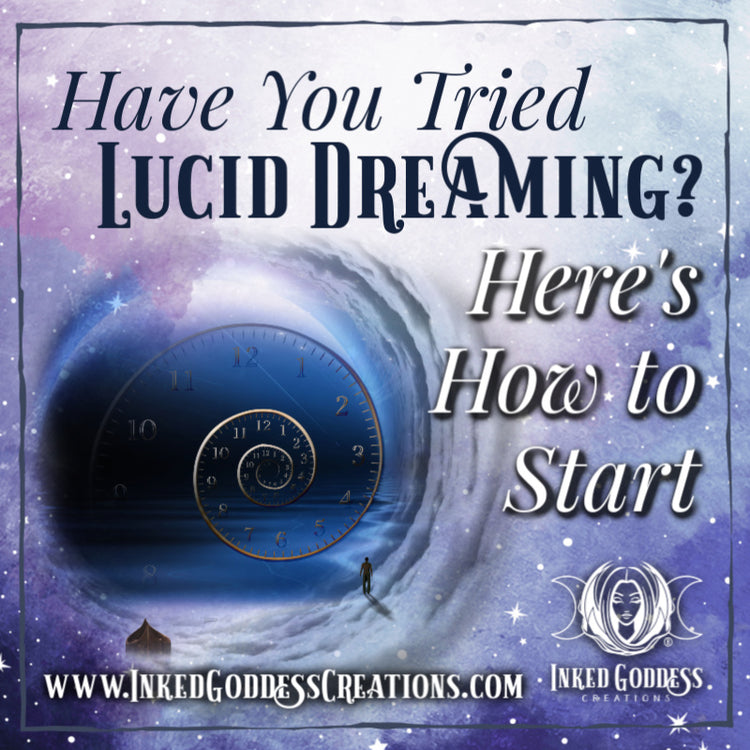Have You Tried Lucid Dreaming? Here’s How To Start

The word “lucid” means clear, but most of us have clear dreams and can remember details when we wake up. But to have a lucid dream, you must be clear about the fact that you’re dreaming. In other words, at some point in your dream, you realize that it’s a dream.
Extensive scientific research has gone into the study of lucid dreaming. One of the best-known experts on the subject, Beverly D’Urso, Ph.D., has been a lucid dreamer since the age of seven. In her dreams, she’s visited the sun, tasted fire, overcome writer’s block, and so much more.
According to D’Urso, you don’t have to be able to control your dream – a common misconception about lucid dreaming. Instead, you simply have to know you’re dreaming. That certainly takes the pressure off for those of us who have never been able to control their dreams.
Benefits of lucid dreaming
One of the biggest benefits of lucid dreaming is that it’s simply fun. In fact, on the occasions when I’ve been able to dream lucidly, I’ve felt a rush of empowerment and excitement upon waking. Other benefits include the ability to hash out problems in your real life. It also provides a safe space to test out different activities and scenarios. And if you’re an artist, it can help fuel your creativity – the images and sensations are terrific!
Risks of lucid dreaming
If you’ve never experienced a lucid dream, it’s pretty simple to train yourself to do so. According to the experts, lucid dreaming is usually safe for most people, but there are a few potential risks to look out for if you live with depression or anxiety.
Some of the risks include a wakeful sleep paralysis, the state between being awake and dreaming. In sleep paralysis, some people experience hallucinations that can be quite scary. Lucid dreaming can also heighten your emotions during your dream – both the pleasant and the not-so-pleasant ones. So, your anger and sadness will feel more intense, but your happiness and wonder will too.
Lastly, with lucid dreaming, you are more likely to experience “dream claustrophobia,” when you feel like you can’t wake up from your dream. You’ve likely had these kinds of dreams before, but they can feel more intense during a lucid dream.
With those points in mind, learning to dream lucidly can be fun and exciting.
Pay attention to detail while awake
Part of lucid dreaming relies on your ability to notice when things don’t fit or don’t make sense. It clues your brain into the fact that you’re dreaming. During the day, pay attention to the world around you. Notice how people interact with others and move about the world. Practice meditation or mindfulness exercises to strengthen your awareness during times that you’re awake, to increase your awareness during dreams.
Start keeping a dream diary
Another way to increase your dream awareness is to keep a dream diary. Place a journal by your bed and write your dreams down immediately upon waking. This practice helps boost your recall of dreams so that you can remember your lucid dreams when they happen.
Check in with reality
Practice at least 10 reality checks every day when you start out trying to lucid dream. Sleep Advisor recommends engaging in a physical activity to reinforce the reality of the awake state – as opposed to the dream state:
- Look at your hand.
- With your other hand, try pushing your finger through your palm.
- In an awake state, you obviously wouldn’t be able to push through your palm. If you were dreaming, though, your finger could go through your hand.
Practicing this kind of reality check while awake helps ingrain it in your mind, so you’re very likely to remember it when you’re asleep.
Disconnect from technology
Deep, REM (Rapid Eye Movement) sleep is necessary for dreaming. Staying away from the television, your phone, and any other device that gives off blue light an hour before bed can help you achieve deeper sleep where dreams occur.
Don’t forget to use magick!
Before going to bed at night, set an intention to dream lucidly. Drink your favorite nighttime herbal tea or use calming oils like lavender or chamomile to help you settle in for the night. Get creative in your nighttime magickal routine – you might find it helps you slip into a lucid dream state much easier.
Now we want to know: Have you ever tried lucid dreaming? How did it go?
